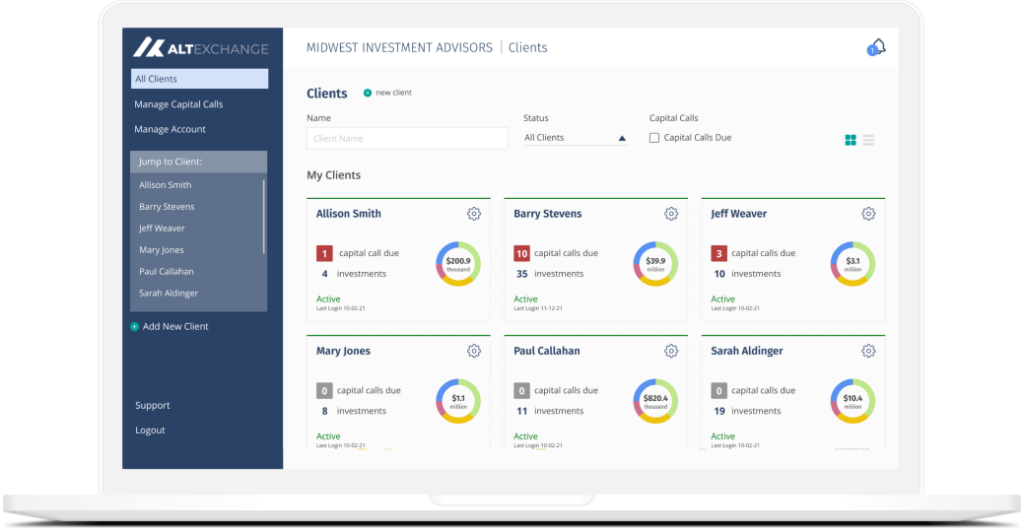Private equity has been one of the most popular investments of the last decade, and only growing in popularity – for good reason. However before committing to a private equity investment, there are a lot of things to consider. Not only do you need to think about the performance of the fund and its management team, but you also need to make sure that the fund is a good fit for your investment portfolio.
Here are nine things you should always look for when considering a private equity fund.
1. The track record of the private equity fund and its management team
When it comes to private equity funds, the track record of the fund and its management team is extremely important. You need to make sure that the fund has a track record of success and that the management team has a lot of experience in the industry. Otherwise, you may not be getting the best return on your investment.

2. The size of the private equity fund
When it comes to private equity funds, the size of the fund is extremely important. You need to make sure that the fund is large enough to make a difference in your portfolio, but not so large that it becomes difficult to manage. Otherwise, you may not be getting the best return on your investment.
3. The investment strategy of the private equity fund
When it comes to private equity funds, the investment strategy is extremely important. You need to make sure that the fund has a strategy that matches your investment goals and that you feel comfortable with. Otherwise, you may not be getting the best return on your investment.
4. The focus of the private equity fund
When it comes to private equity funds, the focus of the fund is extremely important. You need to make sure that the focus of the fund matches your investment goals and that you feel comfortable with. Otherwise, you may not be getting the best return on your investment.

Some private equity funds focus on a specific industry or sector, while others focus on a specific stage of the investment cycle. Make sure that you understand the focus of the private equity fund before making an investment.
5. How much money you will need to invest in the private equity fund
When it comes to private equity funds, the minimum investment amount is an important factor to consider. The minimum investment amount varies from fund to fund, so you need to make sure that you are comfortable with the minimum investment amount required. Some private equity funds have a very high minimum investment amount, while others have a lower minimum investment amount. Make sure that you understand the minimum investment amount before investing in a private equity fund. If you don’t have enough money to meet the minimum investment amount, then you may want to consider other types of investments.

6. Whether you can get a redemption schedule that meets your needs
When it comes to private equity funds, the redemption schedule is an important factor to consider. Some private equity funds have a very long redemption schedule, while others have a shorter redemption schedule. Make sure that you are comfortable with the redemption schedule of the private equity fund before investing your money. If you need to access your money quickly, then you may want to consider a private equity fund with a shorter redemption schedule.
7. What fees you will be charged for investing in the private equity fund
When investing in a private equity fund, it’s important to understand the fees that you will be charged. There are a variety of fees that you may be charged, including management fees, performance fees, and administrative fees. Make sure that you are comfortable with the fees that you will be charged before investing your money.
Management fees are one of the most common types of fees charged by private equity funds. Management fees are typically a percentage of the total amount of money invested in the fund. This fee is paid to the management team of the private equity fund for their services.
Performance fees are another common type of fee charged by private equity funds. Performance fees are typically a percentage of the profits generated by the fund. This fee is paid to the management team of the private equity fund based on their performance.
Administrative fees are another common type of fee charged by private equity funds. Administrative fees are typically a fixed amount of money that is charged each year for the administration and operation of the fund. Make sure that you understand all of the fees that will be charged before investing your money in a private equity fund.
8. How long you will have to hold your investment in the private equity fund?

When it comes to private equity funds, you will typically need to hold your investment for a period of time. This period of time is known as the lock-up period. The lock-up period is the amount of time that you are required to hold your investment in the private equity fund.
The lock-up period varies from fund to fund, so you need to make sure that you are comfortable with the lock-up period before investing your money. Some private equity funds have a very long lock-up period, while others have a shorter lock-up period. Make sure that you understand the lock-up period before investing in a private equity fund.
If you don’t feel comfortable with the lock-up period, then you may want to consider other types of investments.
9. The risk profile of the private equity fund
When it comes to private equity funds, it’s important to understand the risk profile of the fund. The risk profile of a private equity fund refers to the amount of risk that is associated with the fund.
There are a variety of risks that you may be exposed to when investing in a private equity fund, including investment risk, market risk, and liquidity risk. Make sure that you are comfortable with the risk profile of the private equity fund before investing your money.
Managing private equity investments
Managing private equity investments can be complex, but it doesn’t have to be. If you’re an advisor or investor managing a series of private equity or other alternative investments, it’s important to have a solution in place to help streamline managing your investments.

AltExchange eliminates common pain points of managing complex alternative investments including fragmentation, unstructured data, scattered documents, limited performance visibility, and more.